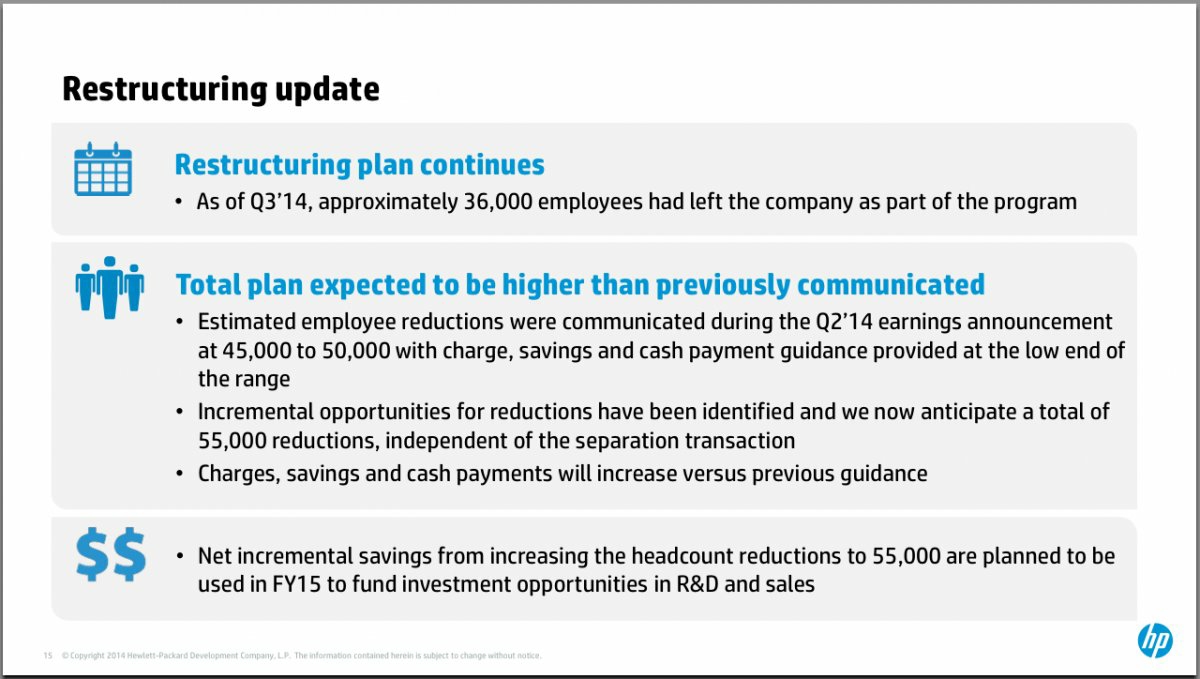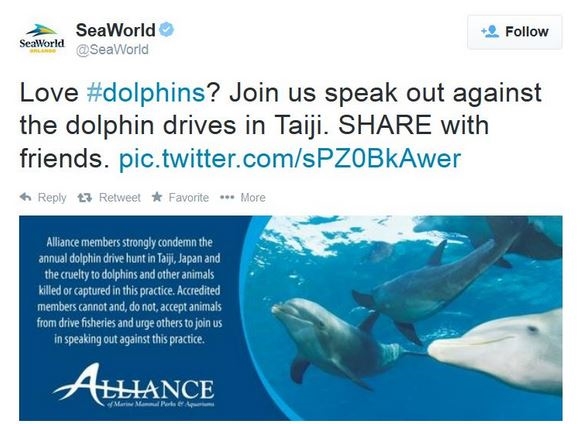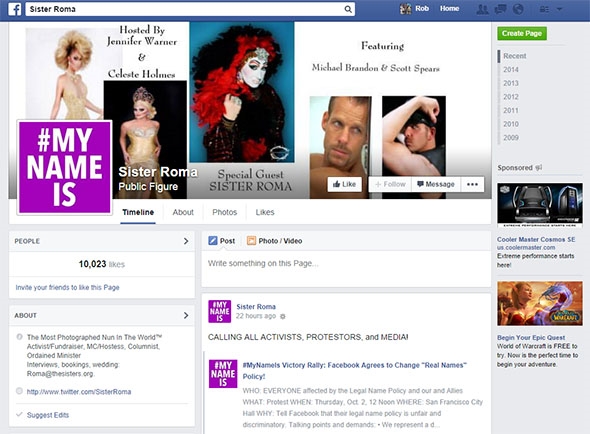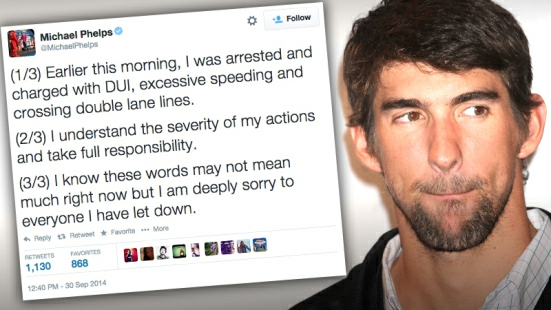Layoffs Coming at Hewlett Packard
To investors, Hewlett Packard's plan to split into two companies may be good news, but employees should be worried. HP will become two companies: 1) personal printers and PCs, and 2) corporate software and hardware. (This follows the news of eBay spinning off PayPal.)
CEO Meg Whitman explains the rationale:
"In short, by transitioning now from one HP to two new companies, created out of our successful turnaround efforts, we will be in an even better position to compete in the market, support our customers and partners, and deliver maximum value to our shareholder."
This slide warns of 55,000 layoffs to come. Original estimates were 5,000, but they grew to 45,000 - 50,000.
Discussion Starters:
- Revise the slide so it's easier to understand.
- The slide seems to be prepared for an external audience. How should HP be communicating internally? Consider the medium, message, and timing.
Zappos Does Damage Control About Layoffs
 According to Zappos CEO Tony Hsieh, the company's plans to lay off 30 employees started an "avalanche" of false reports. Part of the backlash comes from concern about Hsieh's promise to invest in Las Vegas. In 2012, he started the Downtown Project and poured $350 million into real estate and 300 start-ups that, today, employ about 800 people.
According to Zappos CEO Tony Hsieh, the company's plans to lay off 30 employees started an "avalanche" of false reports. Part of the backlash comes from concern about Hsieh's promise to invest in Las Vegas. In 2012, he started the Downtown Project and poured $350 million into real estate and 300 start-ups that, today, employ about 800 people.
The perception isn't helped by an open resignation letter written by David Gould. Gould left a teaching job at the University of Iowa to join the Downtown Project. This is excerpt from the letter:
"Tomorrow, many of the people who merged their voices with yours will find themselves without a job. While their names have yet to be revealed, the disillusioned expressions I conjure up are keeping me awake tonight. This group will undoubtedly include numerous young adults, who have not yet found your good fortune. As they have naively purchased homes and started families, this decision will impact them greatly."
In response to the letter and other criticism, Hsieh puts the layoffs in perspective:
"We eliminated 30 positions from our corporate support staff. We directly employ more than 300 people, and through our investments there are over800 people working in our porfolio of companies in downtown Vegas. Later this week we are adding about 30 positions when we open up The Market and we plan to continue to grow our total job count."
A 2008 ZDNet article compliments Zappo's transparency when it laid off 8% of its workforce six years ago.
Discussion Starters:
- Read Hsieh's entire response. Which arguments do you find most and least persuasive?
- Read the 2008 ZDNet article. What has changed in social media in the past six years?
- Zappos usually wins points for its corporate culture. How, if at all, do you think that reputation factors into the media coverage?
SeaWorld Twitter Fail
SeaWorld's PR team may be too optimistic. Why would they think this promotional tweet would turn out differently?
Has SeaWorld not yet understood how inextricably the company is associated with orca whale captivity? The response tweets, such as this one, shamed SeaWord for its attempt to associate with saving whales: "@SeaWorld Those wild caught beluga calves you are trying to import - how did they get captured? Did they volunteer and jump into the nets?" (Louise @MissBrightside9 Sep 15.)
Other tweets reflected similar sentiment:
Discussion Starters:
- Should SeaWorld have known better than to promote this tweet, or am I too harsh? Maybe people should move on and accept that the company is trying to turn around?
- Imagine that you're a consultant for SeaWorld. What types of tweets would you recommend they post to try to rebuild the brand?
- Sam Berg, one of SeaWorld's former trainers interviewed in the movie Blackfish, said that possibly only one of the current whales at the park would be successful in the wild. Should people stop using the hashtag #emptythetanks?
Facebook Apologizes to LGBT Community
Facebook has always had a policy preventing aliases, insisting that people use their real names as their profiles. Recently, one user reported several hundred profiles that violated this rule. As a result, Facebook suspended pages of many gay and transgender people.
After meeting with people affected in San Francisco, Facebook officials understood that drag queens and others use aliases to protect themselves-to stay anonymous to friends, families, and employers.
Product Officer Chief Christopher Cox wrote this apology:
"I want to apologize to the affected community of drag queens, drag kings, transgender, and extensive community of our friends, neighbors, and members of the LGBT community for the hardship that we've put you through in dealing with your Facebook accounts over the past few weeks.
"In the two weeks since the real-name policy issues surfaced, we've had the chance to hear from many of you in these communities and understand the policy more clearly as you experience it. We've also come to understand how painful this has been. We owe you a better service and a better experience using Facebook, and we're going to fix the way this policy gets handled so everyone affected here can go back to using Facebook as you were.
"The way this happened took us off guard. An individual on Facebook decided to report several hundred of these accounts as fake. These reports were among the several hundred thousand fake name reports we process every single week, 99 percent of which are bad actors doing bad things: impersonation, bullying, trolling, domestic violence, scams, hate speech, and more - so we didn't notice the pattern. The process we follow has been to ask the flagged accounts to verify they are using real names by submitting some form of ID - gym membership, library card, or piece of mail. We've had this policy for over 10 years, and until recently it's done a good job of creating a safe community without inadvertently harming groups like what happened here.
"Our policy has never been to require everyone on Facebook to use their legal name. The spirit of our policy is that everyone on Facebook uses the authentic name they use in real life. For Sister Roma, that's Sister Roma. For Lil Miss Hot Mess, that's Lil Miss Hot Mess. Part of what's been so difficult about this conversation is that we support both of these individuals, and so many others affected by this, completely and utterly in how they use Facebook.
"We believe this is the right policy for Facebook for two reasons. First, it's part of what made Facebook special in the first place, by differentiating the service from the rest of the internet where pseudonymity, anonymity, or often random names were the social norm. Second, it's the primary mechanism we have to protect millions of people every day, all around the world, from real harm. The stories of mass impersonation, trolling, domestic abuse, and higher rates of bullying and intolerance are oftentimes the result of people hiding behind fake names, and it's both terrifying and sad. Our ability to successfully protect against them with this policy has borne out the reality that this policy, on balance, and when applied carefully, is a very powerful force for good.
"All that said, we see through this event that there's lots of room for improvement in the reporting and enforcement mechanisms, tools for understanding who's real and who's not, and the customer service for anyone who's affected. These have not worked flawlessly and we need to fix that. With this input, we're already underway building better tools for authenticating the Sister Romas of the world while not opening up Facebook to bad actors. And we're taking measures to provide much more deliberate customer service to those accounts that get flagged so that we can manage these in a less abrupt and more thoughtful way. To everyone affected by this, thank you for working through this with us and helping us to improve the safety and authenticity of the Facebook experience for everyone."
Discussion Starters:
- What was the rationale for Facebook's real name policy?
- Was changing the policy in this case the right decision?
- Assess Facebook's apology. What works well in terms of the message, organization, tone, and so on, and what could be improved?
Internal Message Posted on a Window
Sometimes a simple mistake requires a simple solution. At one location of Sainsbury's, a British grocery chain, a message intended for employees was mistakenly posted in the window.
In a friendly tweet exchange, a Sainsbury's representative promised to follow up:
The grocer emailed an explanation to Business Insider:
"We often use posters to make store targets fun and achievable for our colleagues. They are intended for colleague areas in the store, but this one was mistakenly put on public display."
Discussion Starters:
- The tweet is quite conversational, including "yeah." Is this appropriate?
- Assess Sainsbury's explanation. Is it sufficient?
- What's your view of the campaign for employees?
Michael Phelps Apologizes, Again
Michael Phelps now has two DUIs-in addition to the bong-hit-to mar his record. The Olympic swimmer was arrested in Baltimore after going 84 in a 45-mph zone and crossing double highway lines.
The previous DUI was in 2004, and the pot-smoking incident was in 2009. In 2012, Phelps told CNN, "I'll make a million mistakes in my life, but as long as I never make the same mistake again, then I've been able to learn and grow."
Discussion Starters:
- Did Phelps do the right thing by apologizing on Twitter? What are his other options?
- Does Phelps' apology meet the criteria recommended by The New York Times writer: painful, authentic, probe deep, encourage feedback, and elicit real change in behavior.
Former Google CEO's Email Advice
Eric Schmidt, former Google CEO, has written a new book, How Google Works. His advice includes nine rules for managing email:
1. Respond quickly. There are people who can be relied upon to respond promptly to emails, and those who can't. Strive to be one of the former.
2. When writing an email, every word matters, and useless prose doesn't.
3. Clean out your inbox constantly.
4. Handle email in LIFO order (Last In First Out). Sometimes the older stuff gets taken care of by someone else.
5. Remember, you're a router. When you get a note with useful information, consider who else would find it useful.
6. When you use the bcc (blind copy) feature, ask yourself why. The answer is almost always that you are trying to hide something, which is counterproductive and potentially knavish in a transparent culture.
7. Don't yell. If you need to yell, do it in person. It is FAR TOO EASY to do it electronically.
8. Make it easy to follow up on requests. When you send a note to someone with an action item that you want to track, copy yourself, then label the note "follow up." That makes it easy to find and follow up on the things that haven't been done; just resend the original note with a new intro asking "Is this done?"
9. Help your future self search for stuff. If you get something you think you may want to recall later, forward it to yourself along with a few keywords that describe its content.
Schmidt's ninth rule supports an IBM study I read a few years ago: Filing emails into folders is a waste of time. I'm old school and still do this, but with more sophisticated search-as in Google's Gmail-finding messages is easier than ever.
Discussion Starters:
- Read more detail about the rules. With which rules do you agree and disagree?
- What advice would you add to Schmidt's list?
Starboard Letter to Yahoo
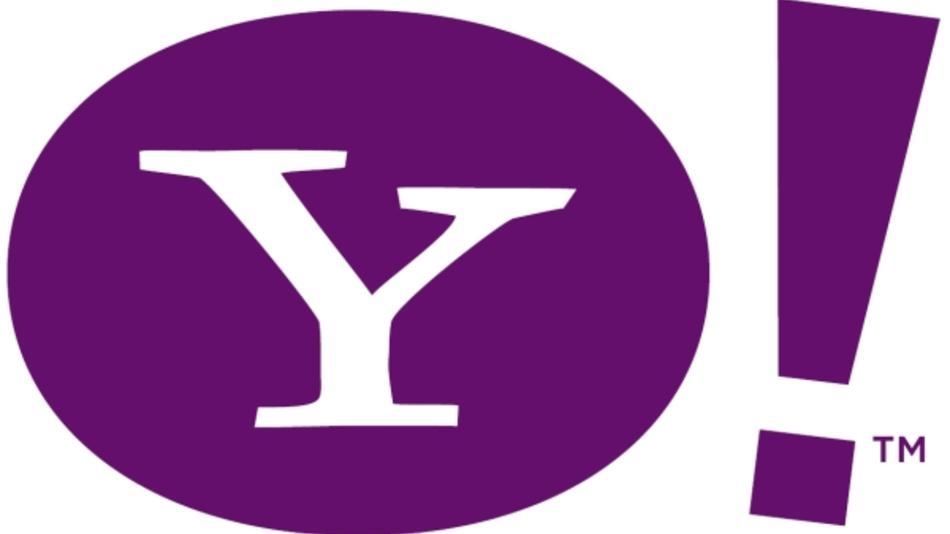 Having finished lambasting Olive Garden, Starboard is onto Yahoo. A managing member of the hedge fund wrote a letter to Yahoo CEO Marissa Mayer with this stated purpose: "to highlight several opportunities to unlock tremendous value for the benefit of all Yahoo shareholders." He summarizes the opportunities as follows:
Having finished lambasting Olive Garden, Starboard is onto Yahoo. A managing member of the hedge fund wrote a letter to Yahoo CEO Marissa Mayer with this stated purpose: "to highlight several opportunities to unlock tremendous value for the benefit of all Yahoo shareholders." He summarizes the opportunities as follows:
- Unlocking the substantial value from Yahoo's non-core minority equity stakes in Alibaba Group Holding Limited ("Alibaba") and Yahoo Japan in a structure that delivers value directly to Yahoo shareholders in a tax-efficient manner;
- Realizing substantial cost efficiencies by reducing expenses throughout the Company, specifically with a goal of reducing losses in the Display business by between $250 and $500 million;
- Halting Yahoo's aggressive acquisition strategy which has resulted in $1.3 billion of capital spent since Q2 2012 while consolidated revenues have remained stagnant and EBITDA has materially decreased; and
- Exploring a strategic combination with AOL, Inc. – a company we know well – which could improve Yahoo's competitive position, deliver cost synergies of up to $1 billion, and potentially facilitate the realization of value from Yahoo's non-core equity stakes with minimal tax leakage.
The recommendation to partner with AOL is perhaps the most dramatic. Mayer responded in a statement:
"Going forward, we have great confidence in the strength of our business. The management team and the board of directors remain committed to building value for all shareholders through the continued execution of our strategy, investing in products that will drive sustainable growth: search, communications, digital magazines and video.
"We will continue to focus on evaluating various capital allocation initiatives, an update to which we plan to provide on our third-quarter earnings call."
Discussion Starters:
Ferguson Police Chief's Video Apology
It's a little late, but Chief of Police Thomas Jackson apologized to the family of Michael Brown, the teenager who was shot on August 9, 2014. Wearing casual clothes rather than a police uniform, Jackson spoke to the camera to deliver his message.
Jackson explained, "The reason we did a taped statement was because there was a lot that I wanted to say, and I wanted to make sure that it was clear. It's harder to do these things out in public." In the message, Jackson acknowledged public mistrust, which some say is irreparable.
Critics on Twitter and Rev. Al Sharpton weren't impressed.
Rev. Sharpton said the response was "too little, too late."
About the delay, Jackson said that he had been wanting to speak with Brown's parents directly for some time. And about his choice of clothes, Jackson said, "It's just me."
Discussion Starters:
- Consider Jackson's options for an apology. Consider the audience, objectives, timing, medium choice, and so on.
- What's your view of the apology video? How do you think the family responded?
Is Yelp Manipulating Reviews?
Davide Cerrentini is proud of his restaurant's rank as the worst on Yelp. Botto Bistro has a slew of negative reviews, most inspired by Cerrentini.
The reviews are quite amusing:
Cerrentini opposes what he considers aggressive ad sales tactics. He claims that Yelp deletes positive reviews and elevates negative reviews if businesses don't sign on for ads.
But Yelp won a recent appeal and posted this statement:
Ninth Circuit Confirms That Yelp Does Not Extort
For years, fringe commentators have accused Yelp of altering business ratings for money. Yelp has never done this and individuals making such claims are either misinformed, or more typically, have an axe to grind––whether businesses upset that Yelp will not remove reviews they don't like, or unscrupulous internet marketing "experts" trying to make a buck off of honest business owners with dubious reputation management schemes. [Continue]
Discussion Starters:
- How would you describe the tone of Yelp's statement? Is this appropriate?
- Cerretini says he's attracting new, higher paying, loyal customers. Is it still true that "any publicity is good publicity"?
Alibaba Chairman's Early Pitch
Bloomberg has unearthed Alibaba Chairman Jack Ma's early pitch to 17 friends back in 1999. Alibaba, the Chinese e-commerce company, just went public with the largest IPO in history, making Ma one of China's wealthiest people.
In this short segment, Ma positions Alibaba as a global company, encourages an American work ethic, predicts the Internet bubble, and sets his IPO plan for 2002.
Discussion Starters:
- Watch more recent videos of Jack Ma. What differences and similarities do you notice?
- Watch Jack Ma's presentation at Stanford. What key messages do you hear? How would you rate Ma as a public speaker?
Bad Timing for Headless Halloween Displays
 What's fun one year isn't fun the next. Severed heads have been part of many Halloween decorations, but recent beheadings by the terrorist group ISIS make these displays seem insensitive. Several Westerners have been murdered by ISIS, which has distributed graphic videos.
What's fun one year isn't fun the next. Severed heads have been part of many Halloween decorations, but recent beheadings by the terrorist group ISIS make these displays seem insensitive. Several Westerners have been murdered by ISIS, which has distributed graphic videos.
Fox was the first organization to apologize for joking about a severed head. Two weeks ago, to promote the DVD series "Sleepy Hollow," 20th Century Fox created e-cards and encouraged journalists to promote "Headless Day."
As Fox says in its apology, the timing was unfortunate:
We apologize for the unfortunate timing of our Sleepy Hollow Headless Day announcement. The tragic news of Steven Sotloff's death hit the web as the email was being sent.
Our deepest sympathies are with him and his family, and we don't take the news lightly.
Had we have known this information prior, we would have never released the alert and realize it's in poor taste.
Please accept our sincerest apologies.
Busch Gardens also has an excuse: It's Halloween. Still, the severed head props aren't being received well. The company issued this statement:
The props in this year's event were designed and purchased several months ago. In light of recent events, some of these props have the unintended consequence of appearing insensitive and are being removed. Busch Gardens apologizes for any offense they may have caused.
Discussion Starters:
- Should organizations refrain from headless displays for Halloween, or are people just too sensitive?
- Assess both apologies. What differences and similarities do you notice?
NFL Goodell's Press Conference Doesn't Go Too Well
NFL Commissioner Roger Goodell held a press conference about the organization's policies on domestic violence. A week after apologizing for not being tough enough during the Ray Rice situation, Goodell tried to respond to continuing criticism and unanswered questions, but critics were harsh.
The entire conference is captured here by Fox News. His speech begins at 21:25.
Here are some highlights:
- Started with another apology: "I got it wrong in the handling of the Ray Rice matter, and I'm sorry for that."
- Outlined steps taken, including asking for an independent investigation, and promised "swift action" based on those findings.
- Described information distributed about support organizations and education sessions planned for staff to be followed by training programs.
- Said the league recognizes sexual assault and domestic violence issues and has entered into parternships with a hotline and resource center.
- Promised to condemn and punish illegal behavior.
Then Goodell talked about our legal system and that "everyone deserves a fair process." He promised changes to their conduct policies by the Superbowl and said, "nothing is off the table." He complimented players, coaches, and staff and focused on "positive, significant changes going forward."
 Press questions focused on his unilateral power, questioned whether the NFL asked for the entire Ray Rice video as claimed (34:40 and 45:00) and what Rice told him 41:20), pondered whether Goodell is holding himself accountable and whether he has considered resigning (37:10 and 38:00). In response, Goodell said he has no plans to resign and focused on the "work to be done."
Press questions focused on his unilateral power, questioned whether the NFL asked for the entire Ray Rice video as claimed (34:40 and 45:00) and what Rice told him 41:20), pondered whether Goodell is holding himself accountable and whether he has considered resigning (37:10 and 38:00). In response, Goodell said he has no plans to resign and focused on the "work to be done."
Critics said Goodell is not doing enough and skirted tough questions.
Discussion Starters:
- Do you find Goodell believable, particularly about the Ray Rice situation?
- Watch the exchange starting at 45:40. The reporter pushes Goodell to consider why the Rice situation was difficult (46:33). Could Goodell have approached the question differently?
- Overall, what could Goodell have done differently to get better reviews of the press conference? Consider both his initial statement and how he handled the Q&A.
- Should Goodell resign?
Marriott Encourages Tipping and Faces Criticism
 Marriott International has joined "The Envelope Please," an initiative to encourage tips for room attendants. The program was started by A Woman's Nation, founded by Maria Shriver:
Marriott International has joined "The Envelope Please," an initiative to encourage tips for room attendants. The program was started by A Woman's Nation, founded by Maria Shriver:
"The Envelope Please was born from having conversations with women I've met who have taken care of my room during hotel stays. Their stories of hard work and perseverance inspired and informed me. They told me that room attendants, who are often the primary breadwinner for their families, are often forgotten when it comes to tipping, unlike other front-of-house employees, since most travelers don't see them face-to-face. I hope this gratitude initiative will make these women feel seen and validated."
Despite the company's good intentions, Marriott faced criticism in a harsh New York Magazine article and on Facebook:
In response, Marriott spokesperson Angela Wiggins told The Huffington Post that most room attendants are paid above minimum wage:
"The tipping initiative is a voluntary way for guests who would like to express their gratitude for good service – in the same way you would tip a bell man or wait staff. We get questions all the time from customers who don't know how much to tip housekeepers, when to tip or where to put it."
Discussion Starters:
- What's your view of the initiative and the backlash?
- Read Marriott's press release and assess the content, organization, and so on. What advice would you give the company in writing future releases?
Urban Outfitters Offends Again
What could be wrong with selling a blood-splatter-patterned sweatshirt? Urban Outfitters has apologized for putting up for a sale a "vintage" shirt with the Kent State logo. If you missed the history lesson, four students were shot in 1970 at Kent State during a political protest.
Urban Outfitters issued this apology:
"Urban Outfitters sincerely apologizes for any offense our Vintage Kent State Sweatshirt may have caused. It was never our intention to allude to the tragic events that took place at Kent State in 1970 and we are extremely saddened that this item was perceived as such. The one-of-a-kind item was purchased as part of our sun-faded vintage collection. There is no blood on this shirt nor has this item been altered in any way. The red stains are discoloration from the original shade of the shirt and the holes are from natural wear and fray. Again, we deeply regret that this item was perceived negatively and we have removed it immediately from our website to avoid further upset."
Kent State weighed into the controversy as well:
This isn't the first time Urban Outfitters introduced an offensive product. The Week chronicled 12 more.
Discussion Starters:
- Is Urban Outfitters intentionally offending? What are the advantages and disadvantages of this advertising strategy?
- Assess the company's response. Does it meet criteria for an effective apology?
- Discuss Kent State's response. Do you think it was wise for the university to weigh in? Why would administrators issue a statement, and what could be the consequences?
Darden Investor Creates 297-Page PPT Report
Starboard Value, a Darden investor, created an extensive PPT presentation to recommend ways to improve the struggling Olive Garden restaurants. Sales and stock prices have been falling.
Starboard, which owns eight percent of Darden's stock, criticizes Olive Garden harshly. The presentation uses clear, specific message titles, discussed in Chapter 10, and the word choices are direct.
The presentation is a good example of mixing text and graphics in a PowerPoint report.
Discussion Starters:
- Read the message titles across the report. Do you find a cohesive argument?
- Which pages work best, and which could be improved? Assess the balance of text and graphics and how clearly main points are conveyed.
- Assess the strong language. Is this appropriate for the audience? What are the possible consequences?
Microsoft's Indirect Layoff Email
 Microsoft's long layoff email is a great example of how the indirect style simply doesn't work for many bad-news messages. Starting with "Hello there" and ending with the predictable "our success in the future," the email has 1,111 words, 14 paragraphs, and no headings.
Microsoft's long layoff email is a great example of how the indirect style simply doesn't work for many bad-news messages. Starting with "Hello there" and ending with the predictable "our success in the future," the email has 1,111 words, 14 paragraphs, and no headings.
NY Magazine writer Kevin Roose did a great job editorializing the message, voicing the reader's frustration. In this segment, he criticizes the jargon and begs for the main point:
"'Financial envelope'? You don't literally keep all of Microsoft's cash in a big envelope, do you? Anyway, 'changes.' I know what that's supposed to mean. Now, please, give it to me straight: tell me I'm fired."
The news is finally clear in the 11th paragraph of Stephen Elop's email. Elop is the executive vice president of Microsoft's Devices & Services.
"We plan that this would result in an estimated reduction of 12,500 factory direct and professional employees over the next year. These decisions are difficult for the team, and we plan to support departing team members' with severance benefits."
The email is a jargon- and slang-filled bore. In addition, Elop would benefit from a more natural, conversational style, avoiding words such as "whereas" and "unto." Here's a paragraph that a business communication student could easily revise:
"As part of the effort, we plan to select the appropriate business model approach for our sales markets while continuing to offer our products in all markets with a strong focus on maintaining business continuity. We will determine each market approach based on local market dynamics, our ability to profitably deliver local variants, current Lumia momentum and the strategic importance of the market to Microsoft. This will all be balanced with our overall capability to invest."
Discussion Starters:
- What advice would you give Elop as he plans his next email to staff? Consider principles in Chapter 4 in the text.
- Just for fun, rewrite Elop's email. Imagine that you're his corporate communication VP, and he asks for your advice. Reorganize and try to make the message sound more, well, human.
DiGiorno Apologizes for Misused Hashtag
DiGiorno's Twitter manager posted too quickly and apologized profusely. Like many Twitter users, the manager didn't check the meaning behind a hashtag and used it to promote the frozen pizza. #WhyIStayed and #WhyILeft were trending about domestic violence-a topic related to the Ray Rice incident.
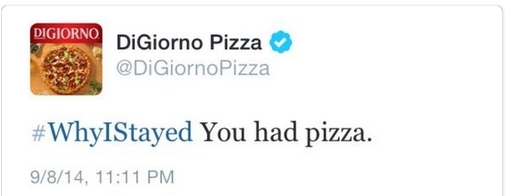 After a predictable onslaught of criticism, DiGiorno's rep did an admiral job of apologizing. The rep sent individual, customized emails to critics.
After a predictable onslaught of criticism, DiGiorno's rep did an admiral job of apologizing. The rep sent individual, customized emails to critics.
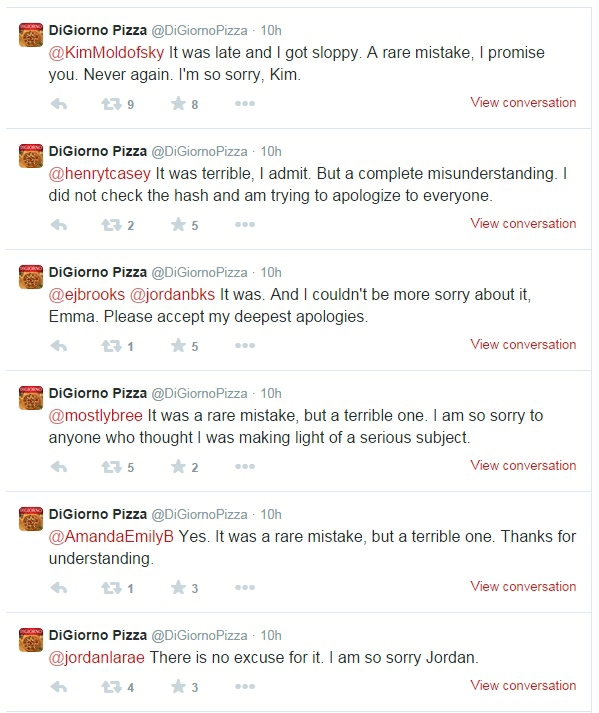 The response strategy is a great contrast to Progressive Insurance's approach a couple of years ago. In that situation, the company repeated tweets, inspiring the "robo-tweet" criticism.
The response strategy is a great contrast to Progressive Insurance's approach a couple of years ago. In that situation, the company repeated tweets, inspiring the "robo-tweet" criticism.
Discussion Starters:
- Find other examples of misused hashtags. (You'll see plenty of them.) In each case, what was the failing, and how well did the company recover?
- Evaluate each DiGiorno tweet. Why were these considered successful by AdAge and others?
NLRB Ruling on "Likes"
 The National Labor Relations Board has ruled on another social media case in which employees were terminated for posting about their employer in social media. In this case, the NLRB upheld the court decision that Triple Play Sports Bar and Grille wrongfully terminated two employees.
The National Labor Relations Board has ruled on another social media case in which employees were terminated for posting about their employer in social media. In this case, the NLRB upheld the court decision that Triple Play Sports Bar and Grille wrongfully terminated two employees.
The employees had responded to this Facebook post by a former employee:
"Maybe someone should do the owners of Triple Play a favor and buy it from them. They can't even do the tax paperwork correctly!!! Now I OWE money…Wtf!!!"
One current employee "liked" the post and another commented, "I owe too. Such an a**hole." Both were fired.
The NLRB protects employees' rights to concerted activity, meaning they can discuss issues, such as pay and working conditions, with other employees. "Mere griping" or simply bad-mouthing an employer or customers typically is not protected.
What's significant about this case is it's the first NLRB ruling that addresses and protects simply "liking" a post.
The NLRB also ruled that Triple Play's Internet/blogging policy was too broad. Employers cannot prevent employees from making any negative comments about a company online.
Discussion Starters:
- Research other cases when the the NLRB has ruled for or against an employer when an employee has posted online. What themes emerge?
- Why do you think "concerted activity" is protected? What does that mean?
Home Depot Finally Confirms Security Breach
After investigating a possible security breach since September 2, Home Depot has confirmed what could be the largest breach yet. While Target's recent incident affected 40 million customers, Home Depot's could approach 60 million.
The company has communicated with customers:
- "Message to our customers" on the website home page links to a statement in which Home Depot apologizes, tells us that which purchases were affected, and offers help.
- In an FAQ, the company tries to reassure customers and tells us about the investigation process and how we can find help.

A New York Times blog post quoted an Internet security expert: "Honestly, Home Depot is in trouble here." Eric Cowperthwaite was highly critical of the company: "This is not how you handle a significant security breach, nor will it provide any sort of confidence that Home Depot can solve the problem going forward."
I'm a little worried: I've shopped at Home Depot recently. I registered for the free AllClear protection and received this email.
Discussion Starters:
- Read Home Depot's statement and FAQs. What inspires confidence, and what makes you worry?
- The breach was discovered and reported from a third party, and it took Home Depot a week to confirm the breach. Should the management team address this in its communications somehow?
- Assess the email I received from Home Depot. Do you find it confusing?


